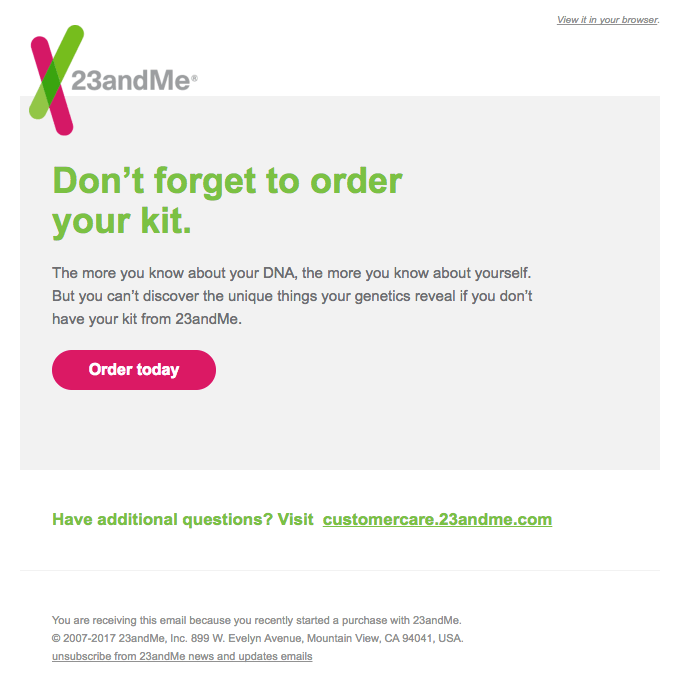Email nurture campaigns are a vital part of any successful inbound marketing strategy. These email initiatives turn potential leads into conversions. This is done through a process of education, awareness and relationship building.
Nurture campaigns are all about investing in audiences. In order for marketers to secure a loyal audience, they need to establish relationships. And these relationships need to be beneficial for both brands and consumers.
These nurture campaigns often come in the form of personalized email campaigns–and that personalization is key.
Using targeted data, 67% of email marketers will invest in more personalized email campaigns.
And that personalization is essential in nurture campaigns.
What is lead nurturing?
Lead nurturing is the process of investing in relationships with brand audiences. Lead nurture campaigns are important for B2B brands as well as B2C campaigns.
When marketers invest in lead nurture campaigns, they’re investing in their audience.
These email marketing campaigns involve a process of education and awareness. These campaigns enlighten potential quality leads on who they are, what they do and why they’re the best in the business.
This often comes in the form of email and content marketing campaigns. Marketers use analytics that comes from user behavior to target the right demographics and provide them with the content that will compel them to buy.
That’s where content marketers come in. These marketing pros build digital content used to educate, enlighten, and convince opportunities to become leads and conversions.
What goes into an email nurture campaign?
Nurture campaigns are campaigns based on behaviors.
Email campaigns are initiatives that engage with audiences in an organic way. These digital interactions educate, enlighten and inspire. They are built from lists created by consumers. Email campaigns answer questions and provide users with content that helps them on their buyer journey.
When the two coincide, they became email nurture campaigns. These campaigns are built on past user behavior.
This behavior includes email signups, website navigation, and search history. What’s more, they do more than connect a potential lead to a brand.

Source: Really Good Emails
Marketers use automated campaigns to reach out to these users via email, creating personalized content that educates and raises awareness.
The point of these email campaigns is turning opportunities into high-quality leads and eventually conversions.
But the point of nurture campaigns isn’t solely promotional. These campaigns educate and enlighten, as opposed to just promoting, because they’re all about building trust, establishing credibility, and creating lasting relationships.
Every time a user performs a specific behavior, these automated emails get a notification, which drives them to send an email based on specific behavior.
These emails are helpful because they lead users on a journey that’s specific to them. Depending on how and when they interact with a brand, they’ll get another email that highlights what they’ve done and offers advice and assistance throughout their user journey.
The importance of email nurturing
Lead generation is important. But without lead nurturing, most leads will disappear.
That’s because consumers want to feel appreciated. Nurture campaigns tell consumers that they, as an individual, matter to a brand overall.
The best way to interact with these consumers and build credibility is through email.
And email drives exponential ROI–about 4400%!
More marketing teams need to invest in automated email nurture campaigns. That’s because these campaigns are backed by statistics and data. This gives brands direct access to potential leads that can drive awareness, boost business growth and increase sales.
This inbound marketing initiative can transform a brand’s marketing strategy for the better by giving them higher ROI with fewer wasted resources. In turn, these initiatives boost productivity and give marketing teams a larger audience to work with when building other marketing initiatives.
Learn how we used automated email campaigns to secure more new consumers here.